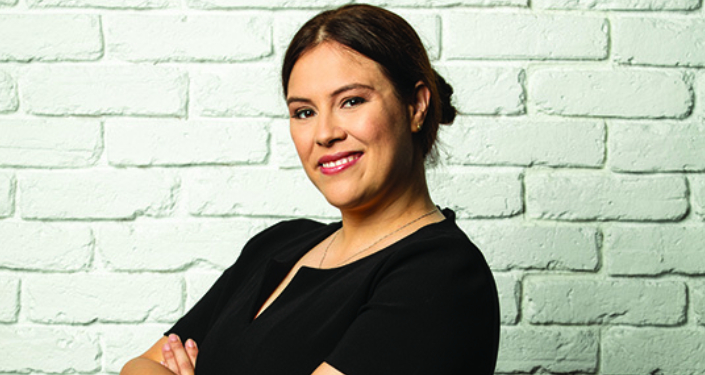Internationally renowned speaker on the science of happiness and positive psychology, Tal Ben-Shahar caught up with IML ANZ Chief Executive David Pich CMgr FIML. They uncover the hidden strength that a positive mind can enable and why happiness isn’t as elusive as some believe it to be.
Continue readingLessons from Matariki: Why a strong sense of community is vital to good business
Matariki is about togetherness and forging a strong sense of community. It also teaches leaders vital lessons for good business.
Continue readingDo people really resist change?
Change fails because people resist, right? But the current pandemic has shown that change can happen swiftly and effectively, challenging long-held beliefs and inviting us to rethink the requirements for a successful shift.
Continue readingThree ways to kick start your cybersecurity and privacy health check
Many businesses may not return to operating the way they did before the coronavirus lockdown. Now that most of your team use third party tools and resources for operating remotely, how can you properly assess these tools for long-term and more permanent use and ensure good security and privacy practices are in place?
Continue readingLeading B2B marketing in times of adversity
As a marketing leader your annual plan has just been turned upside down by a crisis. What can you do to steady the ship and get your teams focused on the future?
Continue readingBooks on leading in the AI age
Booktopia’s Tracey Mills handpicks six books to help lead people through technology disruption.
Continue readingLeading with boundless energy: Jasmin Craufurd-Hill
Jasmin Craufurd-Hill FIML is a leader who wears many hats. IML ANZ chief executive David Pich CMgr FIML caught up with her to discuss leadership, volunteering and the future of energy.
Continue readingFostering culture in a remote workforce
How do leaders unite their people around a shared vision and values, when they include remote workers?
Continue readingPersonal, organisational and national resilience: lessons from three African nations
By Sam Durland FIML
A few years ago, I had a brief encounter with Julia Gillard, during which I asked her how she had managed to cope with the rough and tumble of politics during a particularly tumultuous time in Australia’s recent history. She answered with one word: resilience. Indeed, in her autobiography, Gillard devotes an entire chapter to resilience, which she ascribes to a sense of purpose.
For me, resilience means the ability to overcome major challenges or setbacks. Over the past 20 years, working as an international development consultant and adviser in several African countries, I have encountered numerous examples of resilience at an individual, organisational and national level.
Personal resilience: a lesson from Uganda
In Uganda, I worked with a local entrepreneur who was developing several enterprises based on primary production. The aim is to enable his poor district in the west of the country to become self-sufficient instead of importing foods and raw materials from elsewhere. He was not driven by a need to generate wealth for himself; instead, a burning desire to provide employment and a secure future for his people. He faced many obstacles, from government officials trying to exact bribes for the services they were charged with providing, to a system of land ownership that made it difficult to obtain secure title to agricultural land.
My client was dogged in his resistance to illegal payments and unrelenting in his efforts to register his land title. I especially marvelled at how he dealt with public servants, who put my client at risk of not receiving the requested service, or more alarming, put his safety in danger. In the end, sheer persistence won the day, and the service was rendered without the payment of a bribe.
The lesson: In reflecting on my client’s character, which I believe formed the foundation of his success, I would describe him as exhibiting resilience based on a strong sense of purpose and an overwhelming desire to be of service to his people.
Organisational resilience: a lesson from Lesotho
In the small African country of Lesotho, I worked with a dedicated group of local and international consultants and advisers on a United States-funded project to develop a new government agency that would provide secure land ownership for the country’s citizens. This agency was intended to replace a government department that was widely thought to be both corrupt and inefficient in its dealings with the general public. Members of the project staff faced a major obstacle in the form of pushback from political interests who appeared reluctant towards change.
Project staff found that they were prevented from meeting with key public servants, they had their furniture removed from their offices, and there was even an attempt to confiscate their computer equipment.
The lesson: Despite these and other setbacks, they were resolute in their determination that the project should succeed (and it did), knowing that there was widespread community support for the initiative, as well as obvious benefits for the country’s economy. In the face of strong opposition, this group displayed resilience based on a sense of integrity and a commitment to do what is right.
National resilience: A lesson from Liberia
Finally, I turn to the West African country of Liberia, recently wracked by an Ebola-virus epidemic and still recovering from a 14-year-long civil war. As a consequence of the war, much of the country’s infrastructure had been decimated and government departments’ records destroyed or rendered incomplete. Here, my role was to work with a team of international and local consultants and advisers, and their counterparts in the public service, to develop a new authority designed to oversee land administration and land management in the country and overcome a fragmented and dysfunctional bureaucracy.
Both the war and the epidemic had significantly touched virtually every Liberian whom I came into contact with that time. Yet, despite the distinct challenges, they exhibited both an enthusiasm for our project and a positive outlook on the country’s future.
The lesson: I ascribe their resilience to a sense of positive leadership at the national level (their President, Ellen Johnson Sirleaf, had won the Nobel Peace Prize), a strong sense of national purpose, and a national character grounded in hope.
For me, an underpinning sense of hope is present in all of these examples of resilience. Hope’s power is epitomised by Desmond Tutu when he said, “Hope is being able to see that there is light despite all of the darkness”.
Sam Durland is a Fellow of IML ANZ. Sam’s consulting work has taken him to more than 20 countries in Asia, the Pacific, Africa and South America. He previously held senior executive positions with private enterprise, statutory authorities and government departments in Australia and overseas.
Strengthen your resilience
Leaders need resilience to cope with the daily stresses of work and life. But when the work environment has changed and you face new challenges, what can help you perform at your best?
Paralympian and corporate high-performance coach, Katrina Webb OAM MIML will help take you through a three-phase process to manage your priorities, energy and your mind in our upcoming Virtual Event, ‘The Road to Resilience’.
Real rest: Switch off from work and feel good
By Jane Caro
We live in an era that worships work. Far too many of us believe that unless we are actively doing something every waking moment, we are wasting time. Many people feel guilty about scrolling aimlessly through social media, whiling away an afternoon (or even a whole day) binging on a TV series and/or nodding off on the couch.
I am not one of those people. We all have our gifts and my ability to be completely idle without guilt is one I value dearly.
Such is our worship of work that we even turn attempts to relax into a form of pressure. Wellbeing, mindfulness, meditation (yes, yes, I know they benefit many) are far too worthy and earnest for me. I don’t want to be lazy and do nothing because it’s good for me (even though it is). I want to do it because I like it and my joy in skiving off is actually enhanced by a messy house, laundry that needs doing or dishes that need washing.
SLAVE DRIVER
Perhaps this is also because I work for myself and I have never had a more demanding boss. She (me) is always taking on more work, agreeing to impossible deadlines and working on weekends. She says yes to far too much. Some of it unpaid! This slave-driver (me) is the reason I feel entitled to rebel against her (myself) on a regular basis and collapse on the couch, Netflix remote in hand and give myself over to blissful self-indulgence.
If you run a small business or work as a freelancer or subcontractor, you will know how hard it is to carve out a little time for yourself. If you are not actively working, you are accounting for that work, taking care of the inevitable admin tasks or you are actively seeking more work. It is hard to escape the nagging sense of guilt whenever you’re not actively engaged. But, take it from me, it is necessary both for you and your business. Let’s not even mention your family.
Recreation is a word that we no longer understand. It literally tells you to re-create yourself through activities – or lack thereof – that have no purpose but fun. It is no accident that creativity is part of the word. If you work till exhaustion, if you haul yourself miserably through every day or even most days, your productivity will fall. You are not at your best. Your heart is no longer in it. You’ve lost sight of why you started your business in the first place.
LOVE WHAT YOU DO
Every successful small business has one important similarity – a principal who loves what they do. Now, that doesn’t mean you have to love it every day, or love every task, or even every customer, but you have to love what you do and what you provide – at least most of the time. The paradox of hard work is that you can have too much of a good thing. If you lose your joy in your business for too long, you are at risk of eventually losing your business. When you lose joy, you lose creativity and the ability to come up with new solutions.
We have an epidemic of anxiety in our modern world, brought on for many, I believe, by overwork. Exhaustion is a result of working too hard for too long with no emotional reward. Exhaustion is useful to those who would control our world. Exhausted people, terrified of losing their income if they take so much as a holiday, are compliant people. It’s not just their businesses that become plodding and uninspired, it is their citizenship, their family lives and their view of the future. And, I know this is modern-day heresy, but I believe that if everyone worked 30% less, everything would improve. We’d be more joyful, rested, fun-loving, hopeful, generous, energetic and creative.
I know this is modern-day heresy, but I believe that if everyone worked 30% less, everything would improve.
Maybe the essential paradox of running your own business is that it may be the time when you let yourself lollygag, laze about, daydream and, yes, scroll aimlessly through social media, that is when you are able to have your best ideas and come up with solutions that all the agonising and late nights in the world will not liberate. You will also model sane behaviour to your employees so they too learn the value of rest and recreation, and so become more productive and enthusiastic. It isn’t the hours you put in that are of the greatest value. It may well be the hours you take out.
This article originally appeared in the December 2019 print edition of Leadership Matters, IML ANZ’s exclusive Member’s magazine. For editorial suggestions and enquiries, please contact karyl.estrella@managersandleaders.com.au.











